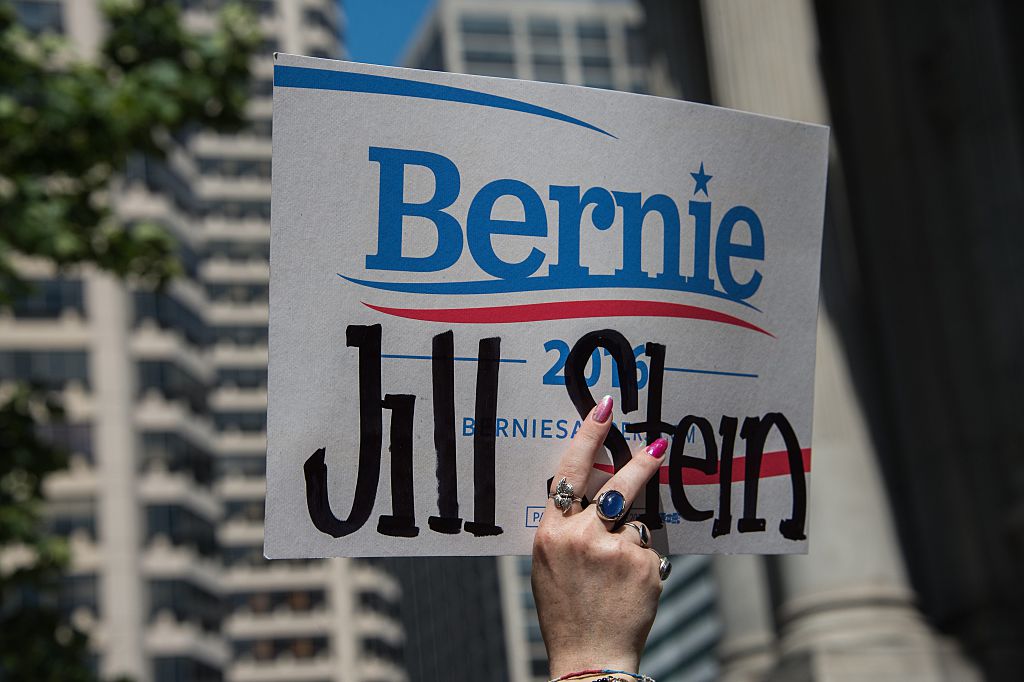Biden seems to be benefiting from the lack of 3rd party enthusiasm


A free daily email with the biggest news stories of the day – and the best features from TheWeek.com
You are now subscribed
Your newsletter sign-up was successful
"Support for third-party presidential candidates, which reached a 20-year high in the last election, has fallen off in every measurable way" this year, David Weigel reports at The Washington Post. So far, at least, that has been a boon to Democratic nominee Joe Biden.
Weigel gave some context:
In the last election, the nomination of unpopular Democratic and Republican nominees created openings for third parties and made it easier for Trump to win. In 14 states, neither Trump nor Hillary Clinton cracked 50 percent of the vote. In Michigan, Pennsylvania, and Wisconsin, as Democrats painfully remind themselves, the vote for third-party candidates was much bigger than Trump's win margin. Six percent of voters didn't vote for either major-party candidate, the biggest rejection of the system in 20 years. More than 1.2 million Americans wrote in a candidate. [The Washington Post]
President Trump's favorability ratings have increased since 2016, but "Biden is viewed far more favorably than the last Democratic nominee, with no single scandal or flaw defining him as the FBI's probe of her email server defined Clinton," Weigel writes. The Green and Libertarian parties are running little-known activists for president, "plans for a centrist third party imploded" again, and the left has put its dreams of "a left-wing, populist, anti-corporate third party" on hold until at least 2021.
The Week
Escape your echo chamber. Get the facts behind the news, plus analysis from multiple perspectives.

Sign up for The Week's Free Newsletters
From our morning news briefing to a weekly Good News Newsletter, get the best of The Week delivered directly to your inbox.
From our morning news briefing to a weekly Good News Newsletter, get the best of The Week delivered directly to your inbox.
The lack of third-party fervor is a big reason 2020 looks very different than 2016, New York Times reporter Maggie Haberman agrees:
Third-party candidates may still decide local and congressional races, Ross Ramsey notes at The Texas Tribune. In Texas, for example, "the all-Republican [Supreme] Court rejected a Republican effort to erase 44 Libertarian candidates from the ballot." (Green Party candidates were knocked off because the Democrats filed their challenges in time.) The idea that Green spoilers help Republicans and Libertarians help Democrats is mostly "political folklore," Ramsey writes, but "every year sees some close races. Candidates do everything they can to get an edge in those close races. And sometimes, the most effective way to do that is to have a third-party candidate in the race."
A free daily email with the biggest news stories of the day – and the best features from TheWeek.com
Peter has worked as a news and culture writer and editor at The Week since the site's launch in 2008. He covers politics, world affairs, religion and cultural currents. His journalism career began as a copy editor at a financial newswire and has included editorial positions at The New York Times Magazine, Facts on File, and Oregon State University.
-
 Local elections 2026: where are they and who is expected to win?
Local elections 2026: where are they and who is expected to win?The Explainer Labour is braced for heavy losses and U-turn on postponing some council elections hasn’t helped the party’s prospects
-
 6 of the world’s most accessible destinations
6 of the world’s most accessible destinationsThe Week Recommends Experience all of Berlin, Singapore and Sydney
-
 How the FCC’s ‘equal time’ rule works
How the FCC’s ‘equal time’ rule worksIn the Spotlight The law is at the heart of the Colbert-CBS conflict
-
 ‘One Battle After Another’ wins Critics Choice honors
‘One Battle After Another’ wins Critics Choice honorsSpeed Read Paul Thomas Anderson’s latest film, which stars Leonardo DiCaprio, won best picture at the 31st Critics Choice Awards
-
 Son arrested over killing of Rob and Michele Reiner
Son arrested over killing of Rob and Michele ReinerSpeed Read Nick, the 32-year-old son of Hollywood director Rob Reiner, has been booked for the murder of his parents
-
 Rob Reiner, wife dead in ‘apparent homicide’
Rob Reiner, wife dead in ‘apparent homicide’speed read The Reiners, found in their Los Angeles home, ‘had injuries consistent with being stabbed’
-
 Hungary’s Krasznahorkai wins Nobel for literature
Hungary’s Krasznahorkai wins Nobel for literatureSpeed Read László Krasznahorkai is the author of acclaimed novels like ‘The Melancholy of Resistance’ and ‘Satantango’
-
 Primatologist Jane Goodall dies at 91
Primatologist Jane Goodall dies at 91Speed Read She rose to fame following her groundbreaking field research with chimpanzees
-
 Florida erases rainbow crosswalk at Pulse nightclub
Florida erases rainbow crosswalk at Pulse nightclubSpeed Read The colorful crosswalk was outside the former LGBTQ nightclub where 49 people were killed in a 2016 shooting
-
 Trump says Smithsonian too focused on slavery's ills
Trump says Smithsonian too focused on slavery's illsSpeed Read The president would prefer the museum to highlight 'success,' 'brightness' and 'the future'
-
 Trump to host Kennedy Honors for Kiss, Stallone
Trump to host Kennedy Honors for Kiss, StalloneSpeed Read Actor Sylvester Stallone and the glam-rock band Kiss were among those named as this year's inductees
